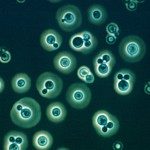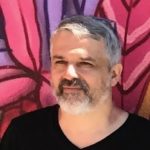Link to Pubmed [PMID] – 28757210
Link to DOI – S1097-2765(17)30496-310.1016/j.molcel.2017.07.002
Mol Cell 2017 Aug; 67(4): 608-621.e6
Transcription is a source of genetic instability that can notably result from the formation of genotoxic DNA:RNA hybrids, or R-loops, between the nascent mRNA and its template. Here we report an unexpected function for introns in counteracting R-loop accumulation in eukaryotic genomes. Deletion of endogenous introns increases R-loop formation, while insertion of an intron into an intronless gene suppresses R-loop accumulation and its deleterious impact on transcription and recombination in yeast. Recruitment of the spliceosome onto the mRNA, but not splicing per se, is shown to be critical to attenuate R-loop formation and transcription-associated genetic instability. Genome-wide analyses in a number of distant species differing in their intron content, including human, further revealed that intron-containing genes and the intron-richest genomes are best protected against R-loop accumulation and subsequent genetic instability. Our results thereby provide a possible rationale for the conservation of introns throughout the eukaryotic lineage.

